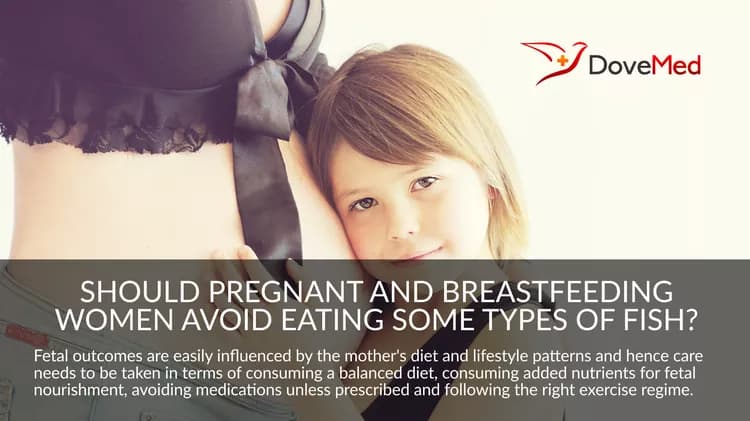
Should Pregnant And Breastfeeding Women Avoid Eating Some Types Of Fish?
Pregnancy is a period marked by several physical, physiological, and psychological changes in women. It is also a period of growing nutritional demands to support desirable pregnancy outcomes for the mother-to-be and the baby. Fetal outcomes are easily influenced by the mother’s diet and lifestyle patterns and hence care needs to be taken in terms of consuming a balanced diet, consuming added nutrients for fetal nourishment, avoiding medications unless prescribed and following the right exercise regime. Lactation is the period where the mother breastfeeds the infant that ideally must last as an exclusive feeding mode for the first six months. During this stage as well, the mother’s diet influences breast milk composition. Since, an immunocompromised state is experienced by the woman during these periods, maintaining a hygienic environment and selecting the right foods that are well pre-prepared and cooked is of utmost importance.
One such concern arises while selecting fish for women who are pregnant or lactating. Fish is seafood known for its protein, vitamins, minerals and omega 3 fatty acid riches. However, environmentalists have reported that high mercury levels of polluted water bodies result in fish having high mercury residues. This is especially true of predatory fish, such as sharks, swordfish, and mackerel, which may have large mercury levels and therefore should be avoided. Dogfish, crabs, halibut, sea beam and sea bass must be avoided as well. Water bodies close to industrial areas or fish species with elevated trophic levels were found to have very high mercury levels, while fish from freshwater had low constituent mercury.
Some amounts of mercury have been generally observed in all fish types, as per a study reported by Richard and co-authors in 2002. Mercury is known to damage the developing brain of the fetus, when it accumulates in the bloodstream of the mother during pregnancy. However, one could choose salmon, sardine, trout, shrimp, pollock, catfish, herring and anchovies, which are safer options during pregnancy, with lower mercury levels and higher omega 3 constituents. But, most of these are oily fish and may contain higher amounts of pollutants, like dioxins, and it is always advisable to limit their intake nonetheless.
Tuna variants or for that matter any local fish must be limited to 6 ounces or less per week. Apart from this, the Food and Drug Administration (FDA) along with the Environmental Protection Agency (EPA) have suggested that not more than 12 ounces of the permitted fish types must be consumed during pregnancy and lactation each week. Cod, hake, skate, haddock, flounder, coley, and gurnardare, are a few fish types that may be consumed without too many restrictions.
Selecting and preparing fish also play a vital role in ensuring safety during pregnancy and breastfeeding. Fish chosen must be fresh, appear firm, with bulging eyes and redness under the gills. It must also be purchased from a clean environment/storage conditions. In case of canned fish, food labels must be scanned carefully for manufacture and expiry dates and mercury levels. Very high salt as preservatives can pose higher risk to women with diabetes or gestational diabetes. The fish must be well-cooked to avoid the risk of microbial contamination, until the internal temperature is close to 63 degree Celsius, or until the flakes are separated and appear opaque. Likewise, shrimps, scallops and lobsters must be cooked, until they give a milky white look. Shelled fish must be cooked until the shells open.
The right selection method, storage conditions, hygienic preparation procedures, and cooking methods, can help render the fish more suitable for consumption during pregnancy and lactation times. Also, fish variants and limitations for consumption must be kept in mind.
Related Articles
Test Your Knowledge
Asked by users
Related Centers
Related Specialties
Related Physicians
Related Procedures
Related Resources
Join DoveHubs
and connect with fellow professionals

0 Comments
Please log in to post a comment.